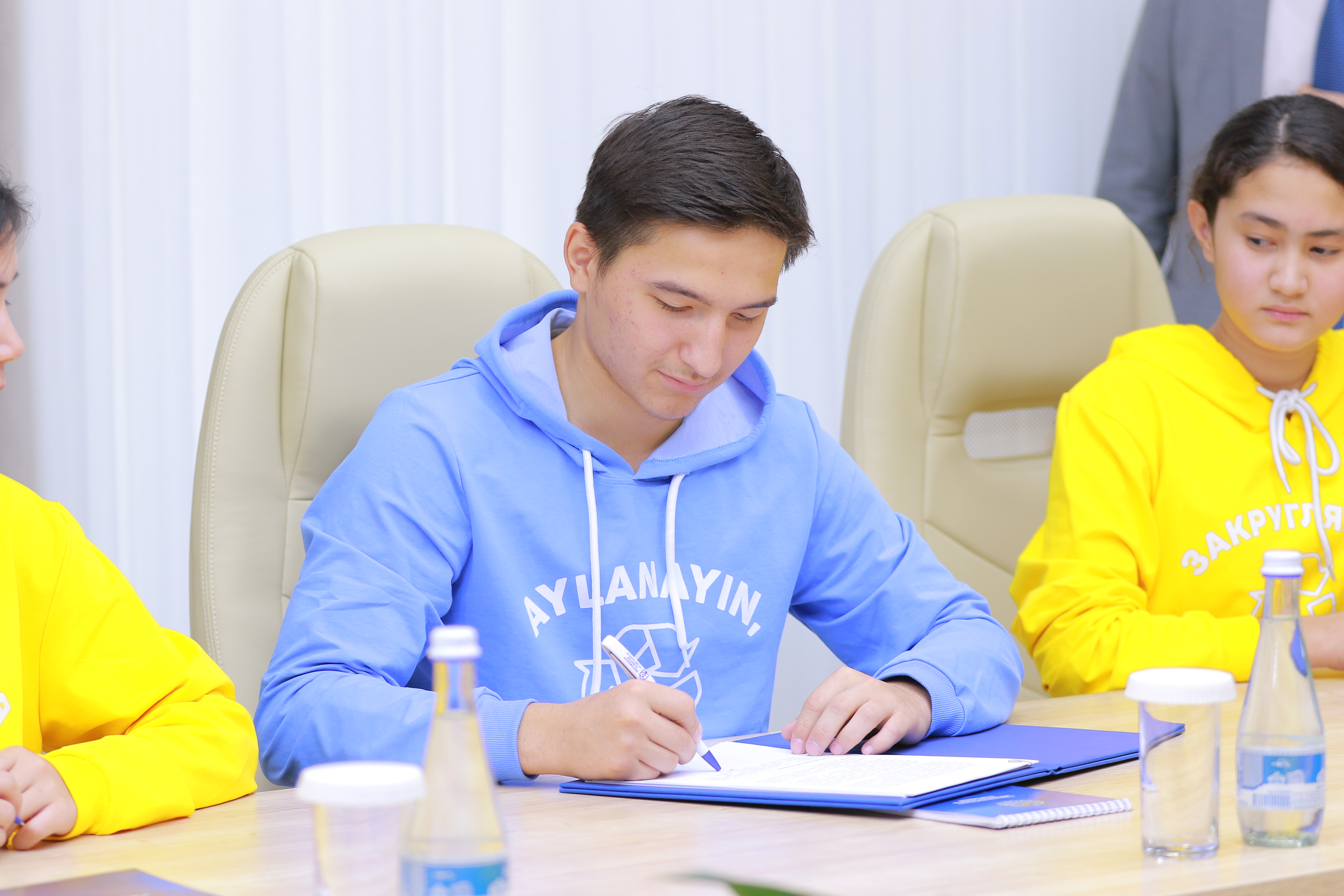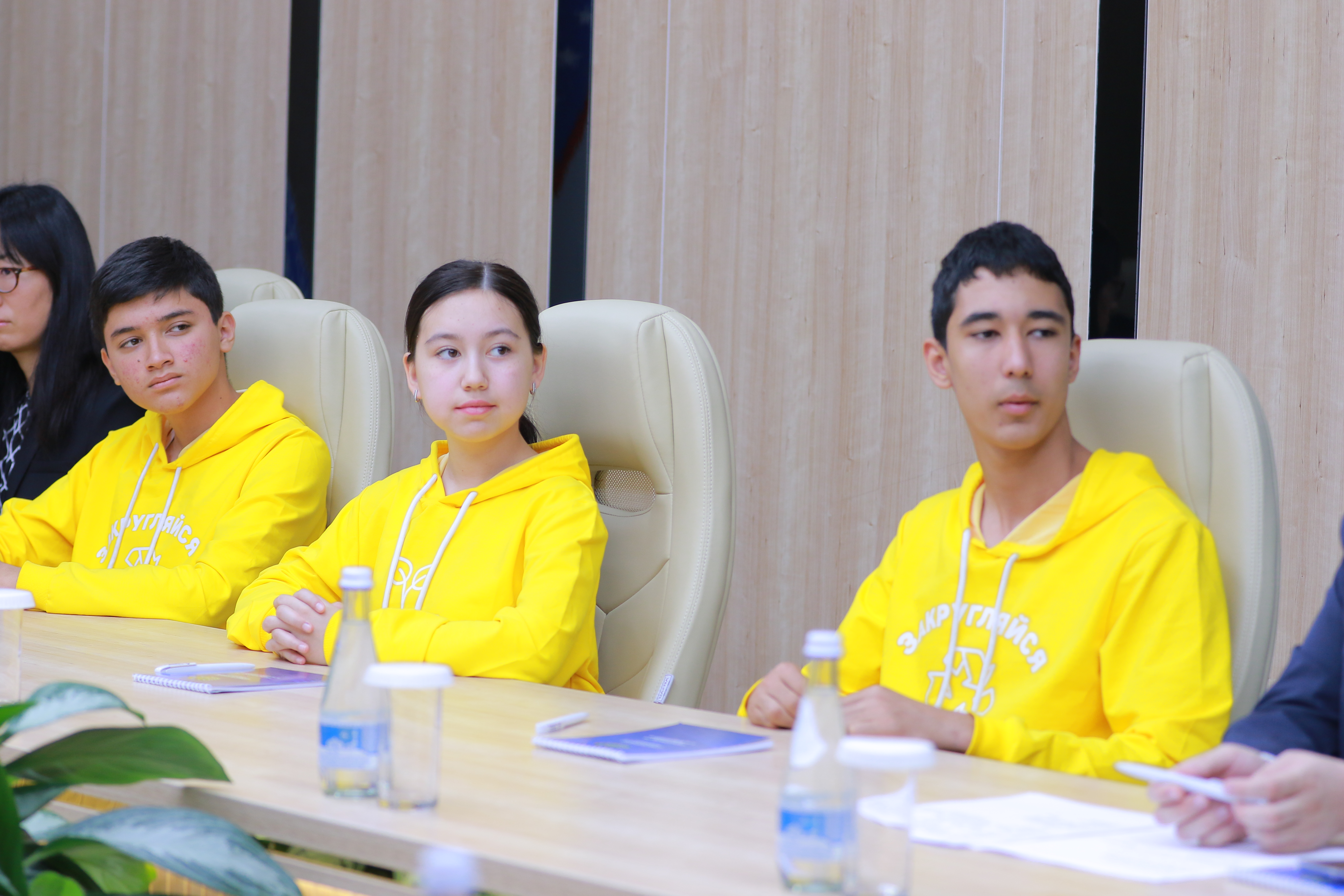In a significant step towards fostering a culture of sustainable development and engaging the nation's children and youth in the global climate agenda, Uzbekistan has officially signed its National Strategy and Roadmap. The Ministry of Ecology, Environmental Protection, and Climate Change, in collaboration with the Ministry of Preschool and School Education and the Ministry of Youth Policy and Sports, organized a pivotal meeting to initiate this transformative endeavor.

The National Strategy, designed to empower the younger generation in addressing climate change and environmental concerns, represents a joint effort between government officials, environmental activists, and international organizations. Key contributors to this initiative included members of the "Eco-schools Uzbekistan" project, who participated in the signing ceremony.
What makes this strategy particularly unique is that it was developed with the direct involvement of the children themselves. International experts from UNICEF and UNESCO lent their support and expertise to the process, and recommendations from the Global Environmental Protection (GEP) initiative were thoughtfully incorporated.

Munir Mamedzadeh, the head of the UNICEF office in Uzbekistan, expressed enthusiasm for the adoption of the National Strategy, emphasizing its collaborative nature.
"This important document was developed and signed not only by the ministers but also by the children themselves. We believe that this strategy will be the basis for promising development in which every child and young person will contribute to the well-being and stability of our society. I am sure that this document will be an example, and I hope that the children and youth of Uzbekistan will share this exemplary experience within the framework of COP-28," Munir Mamedzadeh voiced.

The National Strategy outlines several key objectives and principles that will guide the country's efforts in promoting sustainability among its youth:
- Recognition of the Role of Children and Youth: The strategy underscores the pivotal role of children and youth in combatting climate change and emphasizes their active participation in related initiatives, including educational efforts to understand environmental issues and devise solutions.
- Green Education: The document emphasizes the importance of "green" education as a cornerstone of sustainable development. It calls for educational practices that prioritize continuity, interdisciplinarity, fundamentality, and complexity to impart comprehensive environmental knowledge.

The National Strategy is expected to serve as a foundational document for the gradual establishment of a robust "green" education and sustainable development system across the country. Key tasks outlined in the strategy include:
- Development of a National Policy and Action Plan: To promote "green" education and create essential educational resources, the strategy calls for the development of a comprehensive national policy and action plan.
- Support for Youth Initiatives: To activate the efforts of children and youth in the fight against climate change, the strategy aims to facilitate partnerships and cooperation between various stakeholders. It also recognizes the critical role of intergenerational cooperation in addressing environmental challenges.
- Green School Communities: The strategy seeks to create "green" communities within pre-school and school educational institutions, fostering a culture of sustainability from a young age.

Uzbekistan's commitment to engaging its youth in the climate agenda through the National Strategy marks a significant step towards a more sustainable and environmentally conscious future.
Follow Daryo's official Instagram and Twitter pages to keep current on world news.
Comments (0)